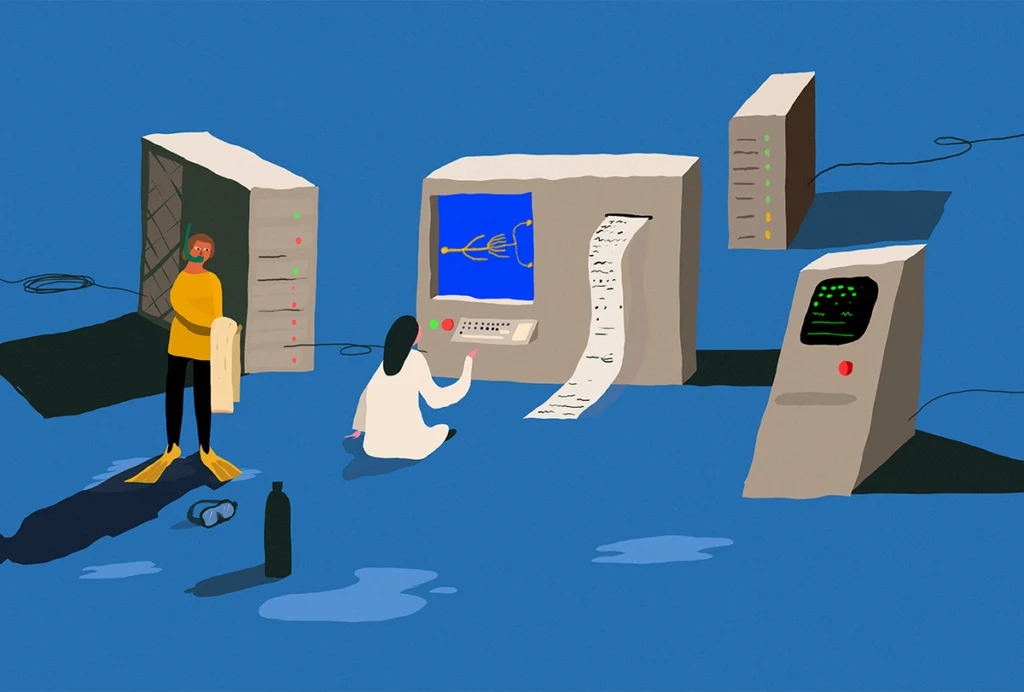Ted Satterthwaite is McLure Associate Professor in Psychiatry and Behavioral Research at the University of Pennsylvania’s Perelman School of Medicine. He completed medical and graduate training at Washington University in St. Louis, where he was a student of Randy L. Buckner. Subsequently, he was a psychiatry resident and a neuropsychiatry fellow at Penn, under the mentorship of Raquel E. Gur. He joined the faculty of the psychiatry department in 2014 and served as director of imaging analytics at the Brain Behavior Laboratory from 2015 to 2019. Since 2020, he has directed the Penn Lifespan Informatics and Neuroimaging Center. His research uses multi-modal neuroimaging to describe both normal and abnormal patterns of brain development, in order to better understand the origins of neuropsychiatric illness. He has been the principal investigator on nine R01 grants from the National Institutes of Health. His work has been recognized with the Brain and Behavior Research Foundation’s Klerman Prize for Clinical Research, the NIMH Biobehavioral Research Award for Innovative New Scientists (BRAINS) award, the NIH Merit Award, as well as several teaching awards.

Ted Satterthwaite
McLure Associate Professor in Psychiatry and Behavioral Research
University of Pennsylvania
From this contributor
How scuba diving helped me embrace open science
Our lab adopted practices to make data- and code-sharing feel safer, including having the coding equivalent of a dive buddy. Trainees call the buddy system a welcome safety net.

How scuba diving helped me embrace open science
Explore more from The Transmitter
New autism committee positions itself as science-backed alternative to government group
The Independent Autism Coordinating Committee plans to meet at the same time as the U.S. federal Interagency Autism Coordinating Committee later this month—and offer its own research agenda.

New autism committee positions itself as science-backed alternative to government group
The Independent Autism Coordinating Committee plans to meet at the same time as the U.S. federal Interagency Autism Coordinating Committee later this month—and offer its own research agenda.
Two neurobiologists win 2026 Brain Prize for discovering mechanics of touch
Research by Patrik Ernfors and David Ginty has delineated the diverse cell types of the somatosensory system and revealed how they detect and discriminate among different types of tactile information.

Two neurobiologists win 2026 Brain Prize for discovering mechanics of touch
Research by Patrik Ernfors and David Ginty has delineated the diverse cell types of the somatosensory system and revealed how they detect and discriminate among different types of tactile information.
Shifting neural code powers speech comprehension
Dynamic coding helps explain how the brain processes multiple features of speech—from the smallest units of sounds to full sentences—simultaneously.

Shifting neural code powers speech comprehension
Dynamic coding helps explain how the brain processes multiple features of speech—from the smallest units of sounds to full sentences—simultaneously.